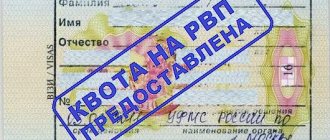Organization of childbirth abroad
Many women and girls, whose financial situation allows them, go to give birth abroad. There are many reasons for this. Firstly, the level of medical care in foreign clinics is considered higher, and secondly, some countries grant citizenship by place of birth. However, the process of organizing childbirth abroad takes a lot of time, requires investing a lot of money, taking into account all the little details and nuances and providing a lot of documents.
The first thing you need to think about before going to give birth abroad is the method of communication with a foreign clinic. There are two options here: contact a medical tourism agency or contact the international department of the clinic yourself. It is recommended to establish contact with the selected clinic as soon as possible and find out all the details of the registration and the list of required papers. If the selected medical center is located in a country with a visa regime, you will have to additionally apply for a visa. The registration procedure will be much easier if, after establishing contacts with the medical center, you receive a special invitation. This document will indicate that the pregnant woman is a private patient of a foreign clinic. In this case, it is important to submit the details of a relative or other accompanying person who will be with the expectant mother during the entire trip abroad.
In fact, the main difficulty in organizing an event abroad lies in finding a suitable medical institution and establishing contacts with it. It is possible that the selected hospital does not accept foreign patients at all, so you should always think of a backup option.
The second stage of organizing childbirth abroad is ordering air tickets. It should be noted that all airlines set certain restrictions on the transportation of women in an interesting position. In most cases, there are no problems with flying until the 28th week of pregnancy. But, starting from the 28th week of fetal development, pregnant women must have a certificate from a gynecologist. The maximum period at which pregnant women are allowed to fly is 36 weeks. In the case of multiple and complicated pregnancies, the maximum permissible period is reduced to 32 weeks. These are general terms and conditions that apply to most airlines. However, each of them has additional requirements, some of which are discussed in the table below.
| Airline | Additional requirements |
| Aeroflot | To fly during late pregnancy, you will need a doctor's certificate issued no earlier than 1 week before departure. |
| S7 Airlines | It is mandatory to have a medical certificate with you confirming the absence of complications and contraindications for the flight (the certificate is valid for 1 week in the absence of a specified departure date), and also sign a declaration of health at the airport |
| Lufthansa | In later stages (from 34 weeks), it is necessary to undergo a medical examination at the local air carrier medical center |
| British Airways | A medical certificate is needed for pregnant women from the 28th week. You also need to sign a document stating that the client assumes all possible risks. |
| El Al | A certificate is required from the 28th week, which must be issued no earlier than 2 days before the flight. At 36-37 weeks, the pregnant woman is examined at the air carrier’s medical center. |
| Flybe | Transportation of pregnant women up to 34 weeks. From 28 to 33 weeks, a medical certificate is required. |
The sooner you depart from your home country, the better. Not all women are willing to take risks and travel to give birth to a child abroad in the later stages of fetal development. Due to premature arrival in the host country, you will have to think in advance about comfortable accommodation until hospitalization and after discharge from the clinic. It is recommended to arrive in the country 4 weeks before the expected date of birth - this will allow you to undergo all clinical examinations. If we sum up all the components (4 weeks before childbirth, 1 week in case of post-term pregnancy, 6-8 weeks of rehabilitation after childbirth), then the minimum time spent abroad will be 3-3.5 months.

So that during your stay in the hospital you do not experience difficulties in communicating with the medical staff and clearly understand what is happening around you, it is recommended to choose a clinic with a Russian-speaking doctor. If this is not possible, you can use the services of a local translator.
What is the best country to give birth in? (TOP 10)
According to reviews of Russian women who traveled abroad for childbirth, there are a number of countries that are ideal for these purposes. It is worth noting that before going abroad, pregnant women very carefully read all the reviews about certain clinics, about the general level of medicine in the state, analyze and weigh all the pros and cons. This is not at all accidental, because they are willing to pay a tidy sum for the sake of high safety of childbirth, a comfortable stay in the hospital and quality care, including for a newborn.
Childbirth in Canada
Childbirth in Canada is considered the most expensive in the world, despite the fact that you will have to pay an average of $8,000-$10,000 for a hospital stay. However, to the main expenses you will have to add expensive accommodation and a fairly long period of time after delivery. The fact is that Canada gives the right to citizenship to children born in the country. Paperwork after the birth of the child will take about 2-3 months. During this time, the baby should attend examinations with a pediatrician.
There are no special maternity hospitals in Canada, so women in labor are sent to multidisciplinary hospitals and clinics that provide childbirth. The country holds the record for the longest water-free period of 3 days. Painkillers are rarely used. Immediately after the birth of the baby, you must inform the obstetrician of his name so that he can add it to the database. Therefore, you need to come up with a name for the child in advance.
After the baby is born, the hospital stay will not be long - 1 or 3 days (depending on how he was born: natural or surgical). The child is with his mother all the time, so there is no need to count on rest.

Childbirth in Germany
Many pregnant women choose European countries to give birth, despite the fact that it is difficult to obtain second citizenship here by birth. Germany is a leader among European countries: it is not very far from Russia, the quality of service and equipment of medical institutions is at a high level. In addition, birth in water and in different positions (lying, standing, sitting) is widely practiced here. Absolutely every hospital is equipped with a swimming pool for water births. Hospitals organize excursions during which you can get acquainted with the hospital conditions, the maternity ward and the medical staff.
Anesthesia is predominantly epidural, carried out at the request of the woman in labor to reduce pain during contractions or according to indications. An accompanying person is allowed to be present during childbirth. When a child is born, they will immediately ask for the baby’s name to add it to the database, so you need to come up with it in advance.
The wards in hospitals are double, while in private clinics it is possible to organize individual hospitalization. Staying even in the most ordinary German hospital is very convenient - nurse call buttons are located throughout the ward - on the bed console, at the entrance, in the shower, near the toilet. If you know English, there is no language barrier in communicating with medical staff.
The Germans insist on natural lactation and will persuade the mother to breastfeed. If desired, you can ask for a special drug that will remove milk from the breast (if you decide to artificially feed). The menu for nursing mothers in Germany is one of the most diverse - they practically do not adhere to a traditional diet. You can always leave your baby in the infant ward for a while and rest.
The cost of childbirth in Germany varies between 8000-10000 €, with a caesarean section the value will double. In Germany, as in most European countries, citizenship is obtained “by blood,” therefore the birth of a child from parents who are not citizens of the country is not a basis for obtaining citizenship.
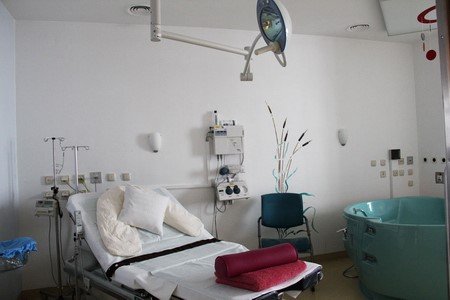
Childbirth in Finland
Childbirth in Finland is an excellent option for expectant mothers who decide to give birth to a baby abroad. There are many reasons for this.
- Finland is close to the Russian Federation, so successful flights are possible even in late stages of pregnancy. The journey for the expectant mother will be short and therefore not so painful.
- Medicine and medical care are well developed in Finland, so the child will be born in comfortable conditions for both him and the mother.
- In Finnish hospitals, Russian-speaking medical staff are often found, so in most cases the services of an interpreter will not be needed.
- Here they successfully help give birth during complicated and multiple pregnancies.
- A relative is allowed to be present during childbirth.
Anesthesia in Finland is used mainly according to indications, often it is a laughing gas installation. Once the baby is born, you can leave it in the baby room and rest. Discharge from the clinic takes place in a short time and is possible even on the day of delivery.
The amount of the medical deposit will be about $5,000, but the stay in the medical facility itself will cost a smaller amount (up to $3,000). All remaining funds are returned to the patient's account. The citizenship of a child at birth in Finland is determined by the citizenship of the parents.

Childbirth in the Dominican Republic
The Dominican Republic has become very popular among mothers traveling abroad. Reviews about the conditions in local hospitals are different: some regret that they chose this country for childbirth, others emphasize the high degree of care from the medical staff.
Adaptation to the subtropical climate of the Dominican Republic is different for everyone. Many are deterred by the high mortality rate of newborns. However, it cannot be said that hospitals are poorly equipped. New equipment is imported here from the USA. Almost all Dominican doctors received their medical education in America or the former USSR. The cost of childbirth here is relatively low: under the most comfortable conditions, the price will not exceed $5,000.
In the Dominican Republic, “soil law” applies, so at birth a child receives citizenship of the country. This can give you a lot: a visa for up to 10 years in the USA, the possibility of accelerated acquisition of Spanish, Mexican or Colombian citizenship (of course, you will have to give up Russian). It turns out that when a child reaches adulthood, he will be able to choose one of these states and become, for example, a citizen of Spain (which is especially valuable if he wants to live and work in the EU).
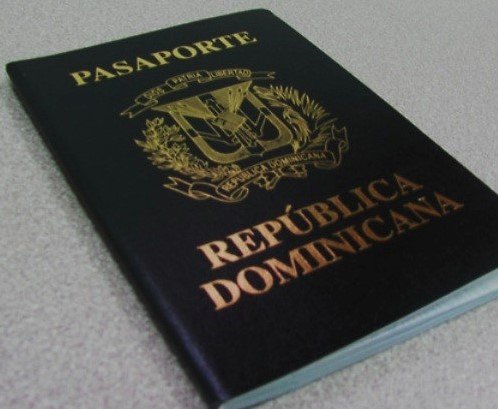
Childbirth in the USA: pros and cons
People go to the United States to give birth primarily so that the child can receive citizenship, and after he or she turns 18, so can his parents. The government is considering abolishing the “law of the soil” in force here, but in 2021 it is still in force.
The stay in a hospital or clinic itself will be about $10,000, the amount does not include the cost of accommodation and food outside the medical facility. Induced births are widespread in the United States—the rate of cesarean sections performed here is one of the highest. With such an operation, you will have to pay approximately 50% of the cost of natural delivery. American doctors will be happy to perform an operation even without any indications for it. If a woman is categorically against this procedure, she should definitely inform the doctor about this. Otherwise, he can find any clue to perform the operation and make money.
Anesthesia is widely used here and is given to almost everyone. After the baby is born, he is left with his mother; it is possible to leave the baby for a short time under the supervision of a nanny.
Pregnant women can choose where they will give birth. In America, the obstetric system offers delivery in public hospitals and birth centers. The latter only accepts women with pregnancies without any complications. In hospitals, births are attended by obstetricians and assisted by nurses. If you wish, you can use the services of highly qualified obstetricians (in the USA there is such a thing as an institute of obstetricians).
For clarity, we can separately highlight the pros and cons of America as a country for childbirth.
Advantages:
- the rooms are well equipped and comfortable;
- the possibility of obtaining automatic citizenship;
- the presence of several relatives at once during childbirth is allowed;
- providing anesthesia.
Flaws:
- high cost of staying in a medical institution;
- Not at all dietary food for nursing mothers;
- performing a caesarean section without reason;
- a package of documents consisting of many papers, as well as the possibility of refusal even if it is provided in its entirety.
Since the flight from the Russian Federation to the USA will be long, it is not recommended to choose a departure date in the late stages of pregnancy. Even citizens of the country do not receive any child benefits in the United States, with the exception of low-income families.

Childbirth in the UK
Great Britain provides its citizens with free but very high-quality medical services. Foreigners entering into a contract with a medical institution are required to pay for all procedures. The amount of expenses will be approximately $8000-10000.
English doctors are confident that natural childbirth is preferable for the female body, but if a woman in labor wants to have a caesarean section, they will not refuse the operation. As in many other countries, in the UK they clearly discuss the birth plan with the doctor - in what conditions the woman will give birth, whether she will need anesthesia, etc. By the way, in local hospitals they use the usual anesthesia, and in obstetric centers they use paracetamol and laughing gas. During strong labor pains, a woman can always reach out with her hand to the gas installation mask and have a little “fun”. This will not reduce the pain, but it will improve your mood.
In hospitals, wards are 4-6-bed, in obstetric centers - individual. The latter is accepted only if labor proceeds correctly without any complications. In the UK, special units for babies have been abandoned, so after birth the baby is immediately placed next to the mother, without giving her time to rest. On the one hand, this is absolutely natural - from the first seconds of life, the baby gets to know his mother, feels her smell, hears his native voice. Already 1 day after natural delivery, the mother and child are sent home (in the case of a cesarean section - after 3).
The leading position in popularity is occupied by the London private Portland Hospital. Celebrities and wealthy ladies come here to give birth.
A child born in the UK without citizenship or a residence permit in the country of at least one of the parents does not receive citizenship of the country.

Childbirth in France
On the Internet you can find many reviews about Russian women giving birth in France. The popularity of this country among expectant mothers does not dry up in 2021 - it is in this state that the level of medical care in the field of gynecology is very high. Highly qualified French doctors are not afraid of difficulties and equally successfully handle normal and multiple births. The level of maternal and child deaths in local medical centers and hospitals is very low, which inspires some confidence.
The amount of expenses varies greatly and depends on the status of the medical institution and the set of additional services. A more affordable option is hospitalization in a public hospital. Of course, the conditions will differ from being in a private clinic. Although the care itself for the woman and the newborn is at a high level in both cases. So, the cost can vary from $10,000 to $30,000.
In almost all cases, the procedure is performed under anesthesia. The use of painkillers is widespread in French health care settings. A woman in labor can, of her own free will, request a caesarean section - no special indications are required to select a birth method.
If you analyze the reviews of those who gave birth in France, you can make a list of the best hospitals and clinics:
- La Muette Clinic;
- St. Isabel's Clinic;
- Joan of Arc maternity hospital;
- Santa Maria Clinic.
The child born does not automatically receive French citizenship. At birth, he is given a certificate allowing him to apply for a residence permit, provided that he continuously resides in France for 5 years from the age of 11 to 18.

Childbirth in Israel
Israeli clinics and medical centers are famous throughout the world for their highly qualified specialists, the latest developments and equipment, as well as relatively low prices. Here, expectant mothers are offered high-quality examinations, safe delivery and a comfortable stay for several days with their newborn. By the way, Israeli medical centers rank last in the world in the number of stillbirths. Another advantage is the frequent presence of Russian-speaking medical staff, so the services of an interpreter may not be needed.
In Israel, caesarean section is used only in extreme cases; local doctors will do everything possible to ensure that the birth takes place naturally. The cost of a natural birth is around $5,000, which includes hospitalization, meals, childbirth (with anesthesia if desired), and examination of the newborn. A caesarean section with the same basic services will cost 2 times more. If you wish, you can pay extra for preparation courses for childbirth and visit the pool, proper breathing training, gymnastics for pregnant women, etc. Also, additional payment will be required if you wish to be hospitalized in a separate room. Regular wards are three-bed.
Based on reviews from Russians, the ideal clinics where childbirth is performed are:
- Ikhilov;
- Hadassah;
- Rambam;
- Soroca Center.
Israel does not grant citizenship to children born to both foreign parents. Registration of Russian citizenship for a child born abroad takes place at the Russian consulate.

Childbirth in Spain
Spain has gained wide popularity among foreign women who decide to give birth to a child abroad. Firstly, the country’s favorable climate has a positive effect on well-being, and secondly, obstetrics and gynecology are developed here. The flight from the European part of Russia to Spain is relatively short.
The cost of a birth will be approximately 3000-5000 €, in the case of a caesarean section the amount approximately doubles. The indicated cost includes tests and examinations, stay in the ward before and after labor, the birth itself, as well as all necessary medications, anesthesia and medical services. Since the amount of expenses is quite high, you can significantly reduce it by purchasing a Spanish medical policy in advance. In order for it to cover a significant part of the amount, it is necessary to purchase insurance when planning a pregnancy. Insurance can be purchased from Spanish companies (Adeslas, Sanitas, Mapfre, Asisa, etc.). The amount of monthly contributions varies from company to company and ranges from 30-50 €.
The following prestigious Spanish clinics and hospitals have gained particular popularity among foreign women:
- NISA;
- Hospital Casa de Salud;
- Centro Medico Teknon;
- Imed Elche;
- Vistahermosa.
There is no expectation that a child born in Spain will receive citizenship, provided that neither parent has one. But subsequently, upon reaching adulthood, a person born on Spanish soil can apply for citizenship. Therefore, Spain is considered the only state in Europe in which childbirth is possible in order to obtain citizenship for a child, but you will have to wait quite a long time.
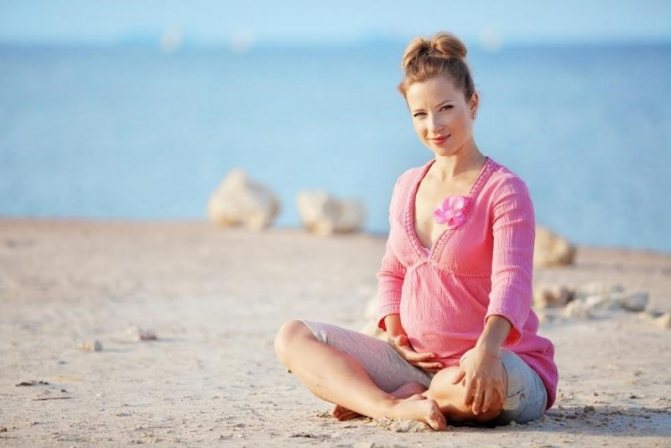
Childbirth in Romania
In the ranking of European Union countries in terms of the level of medicine, Romania is in last place - the state invests less money in the development of medicine than everyone else. Accordingly, the equipment of hospitals and the quality of services are lower here. If you decide to give birth in this European country, then only in large cities, in well-equipped clinics. For example, in Bucharest.
Many people mistakenly believe that children born in Romania automatically receive Romanian citizenship. Not a single state that is part of the European Union recognizes the “right of the soil”, therefore, if you give birth in Romania, you will not be able to obtain a Romanian national passport for your baby. Here, only the “right of blood” is recognized - the presence of close or not very close family ties with a citizen of Romania or marriage with a person of Romanian nationality.
Mexico - 53rd place in the ranking
Not only the newborn will receive Mexican citizenship, but also his parents three years later. And immediately after giving birth, the mother and father can obtain a permanent residence permit. One of the advantages is a passport of a citizen of the world, that is, a newly minted Mexican will be able to visit 135 countries without a visa.
As statistics show, Russian women are not always guided by selfish interests and more often choose countries with high quality medicine for childbirth - Finland, Israel, Germany, etc.
— Russian women often go to give birth in Finland, which is close to us, where there is a very low infant mortality rate. Countries such as Israel, Germany, France, Sweden, Norway and the Baltic countries are also popular among our compatriots,” says Konstantin Onishchenko, president of the Russian Association of Medical Tourism. “Generally speaking, the birth of a child in another country does not give him the right to become local citizen. However, it is worth noting that there are a number of countries in which, at the legislative level, it is allowed to give citizenship to a child born in the country. The list of such countries includes: Canada, USA, Brazil, Colombia, Jamaica, Argentina, Uruguay, Peru, Mexico, Pakistan and Barbados. It is worth remembering the pitfalls of childbirth abroad. The main one is the country where a child born on its territory is given citizenship. It is important to understand that when this child accepts foreign citizenship and renounces Russian citizenship, he is “given” not only the rights, but also the responsibilities of a citizen of this foreign state. This includes military service from a certain age, taxation according to a local scheme, and so on.
At what age do people give birth in Europe?
A Russian citizen, going to give birth abroad, may experience some inconvenience. For example, many are worried that foreign doctors will look askance at a pregnant woman aged about 40 or, conversely, at a too young girl with a belly. In many European countries, the average age of women giving birth differs greatly from the figure in Russia.
For the Russian Federation, the average age of women giving birth is 26 years. Over the past decades, this figure has increased by 5 years. Now Russian women are in no hurry to have children, which is also typical for European women. The average age of women giving birth in the EU is 29 years. And although in Russia it is still generally accepted that a 25-year-old girl without a child is an “old maid,” in Europe a pregnancy at the age of 40 is considered late childbirth. And this phenomenon is considered quite normal and does not surprise anyone. Late births are typical for Italy, Spain, Germany, Switzerland, and Holland. Here women prefer to build a career and earn money. The fact is that spending several years at home with children sharply reduces the chances of a decent pension. Of course, this applies to women with high earnings.
Late birth of children, in addition to the opportunity to build a career, is characterized by several other advantages. Firstly, the long-awaited child will be truly desired. Secondly, a mature woman is more attentive to her pregnancy - she attends all the necessary courses and classes, and monitors her diet. Thirdly, with age, a woman becomes more experienced and wiser, so she will be able to organize quality care for her child. Therefore, the trend to give birth after 30 (and in Europe after 40) quickly gained momentum.
The Latvian, Bulgarian and Romanian indicators are close to the Russian average age of women in labor. In these European countries, women often give birth at the age of 20-23 years, and late pregnancy is an extremely rare case. You can add Hungary, Estonia and Lithuania to the list, where women mostly give birth at the age usual for Russians.
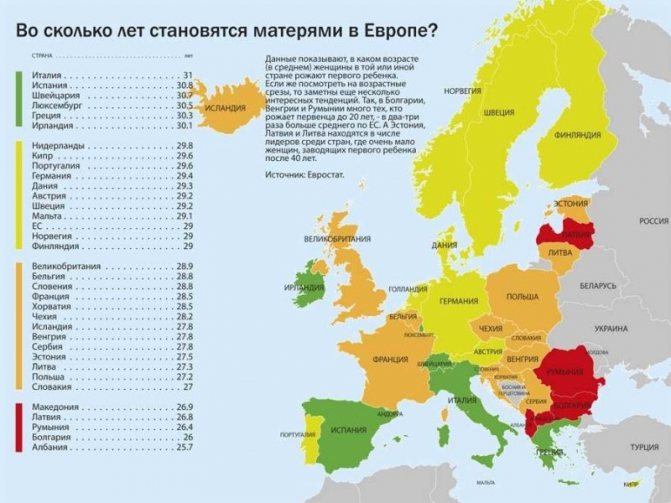
What is filiation?
The term “affiliation” means the right to acquire citizenship at birth. The process of filiation in Russia is the same as in most countries – “by blood”. That is, after organizing childbirth in Russia, obtaining Russian citizenship is impossible for foreign citizens if they do not have a residence permit. Also, foreigners who come to give birth to a baby here cannot count on receiving local child care benefits. The opposite situation, when Russians go abroad to give birth, is absolutely similar - new mothers can only count on financial assistance from their state at the birth of a child - at their place of work and residence. The same applies to lump sum payments and monthly benefits.
After giving birth, when the mother and baby return to their homeland, it is recommended to start processing all the paperwork to receive maternity capital (the Russian state does not pay for the first child, but only for subsequent ones) and other benefits. First of all, you must provide a foreign birth certificate to the local registry office. If one is not issued in the country where the birth took place, then all the information is in the consulate’s database. Therefore, when applying for benefits in this case, you do not have to provide a certificate from the registry office; however, the rest of the package of documents is required. Receipt of money at birth in the case of dual citizenship is carried out in the territory of the country where the family actually lives. It turns out that benefits can only be received in one of the two countries. By the way, the largest benefit for the birth of a child is received by young couples in the UAE - the subsidy paid by the state is $60,000, in addition to money they also allocate a plot of land.
A little about filiation in Russia
On the territory of the Russian state, both principles coexist quite harmoniously. Russian citizenship of a child by birth occurs in the following cases:
- both parents (or one of them, if nothing is known about the location of the second) must be Russian. In this case, the country where the baby was born does not matter;
- one of the adults has Russian citizenship, and there is no information about the second. Again, without reference to the country of birth;
- the parents have different nationalities (one of them is Russian), and the child must be born in the Russian Federation. If born on the territory of another country, he will be considered a stateless person;
- if the parents are foreigners, but the baby’s place of birth is Russia, and the country of his family is not governed by the right of blood, then the newborn can become a Russian by right of birth.
Obtaining citizenship at birth is possible even when there is no information about either of the baby’s parents, and they do not show up for 6 months.
The inevitable fact is that a change in the citizenship of parents leads to the same action in relation to the child. Children have the right to independently decide which country to belong to only after 18 years of age.

How are things going in other countries?
In addition to the two principles already mentioned, some countries practice citizenship by place of birth, which is inherited. Such cases are quite rare, but they do occur. In particular, we can talk about such a tradition in the Baltic countries. For example, if the ancestor of a newborn was a Latvian citizen before 1940, then the baby can acquire the status of a citizen of this country, even if his relative died before his birth.
Situations are very common today when young mothers travel outside their state to the country whose citizenship they would like to obtain for their baby. Not everyone knows, however, that the combination of the two principles is applied rather limitedly: countries that grant citizenship by birth, especially status ones, are usually guided by one of them.
For example, only a child who has lived in the country for at least 5 years before his 18th birthday and was born, accordingly, also in this territory, can become French. The German authorities also recognized the supremacy of the law of the soil, but on the condition that the candidate spends here at least 8 years.
But Italy, Spain, Ireland, and Great Britain grant citizenship when both the baby and one of his parents were born in this state. In addition, the authorities of the British Isles require that at the time of the birth of the child the family resides in the territory of the kingdom.
Which countries still give citizenship at the birth of a child? It is well known that America, but only when the applicant reaches the age of majority, and if the foreign parents do not come from a state hostile to the States.
The requirements can be called more stringent in Denmark. Here, in order to obtain a local passport, a candidate born on the territory of the state will have to live in the country continuously for 19 years.
And a person born in Spain, but living in another country, can apply for citizenship upon reaching the age of 19: that is, the right of the soil is recognized here, but it must be supplemented by the informed choice of the applicant.
In general, the list of countries that automatically grant citizenship by birth includes:
- Belize;
- Barbados;
- Argentina;
- Antigua and Barbuda;
- Venezuela;
- Bolivia;
- Grenada;
- Brazil;
- Guatemala;
- Dominica;
- Guyana;
- Dominican Republic;
- Honduras;
- Malaysia;
- Lesotho;
- Colombia;
- Canada;
- Nicaragua;
- Mexico;
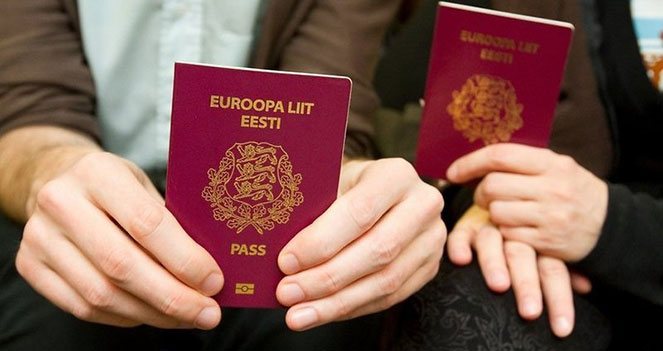
- Panama;
- Peru;
- Pakistan;
- Paraguay;
- Romania;
- Saint Christopher and Nevis;
- Saint Lucia;
- Salvador;
- Saint Vincent and the Grenadines;
- Chile;
- Fiji;
- Uruguay;
- USA;
- Jamaica;
- Ecuador;
- Trinidad and Tobago.
Thus, this includes almost the entire American continent, some countries of Latin America, Africa, and Oceania. But in Europe, none of the representatives of this part of the world automatically grants Jus Soli (the right of the soil). This is due to the cultivated desire to preserve one’s ethnic roots, and therefore in most cases the so-called right of blood is found here.
Where is citizenship granted at the birth of a child?
Considering the various possibilities of childbirth in different countries of the world in order to obtain dual citizenship, the thought inevitably arises in my head: “Is it possible to become subjects of a new state with the whole family?” It turns out that there are several states that provide the opportunity to acquire citizenship by birthright for a newborn and parents.
Brazil. A child born in Brazil will receive citizenship automatically, and parents can quickly apply for an indefinite residence permit. Already a year after receiving a residence permit, parents can apply for citizenship of the country. The registration will take about six months. A Brazilian passport will allow you to stay in almost every country in the world for 90 days without a visa.
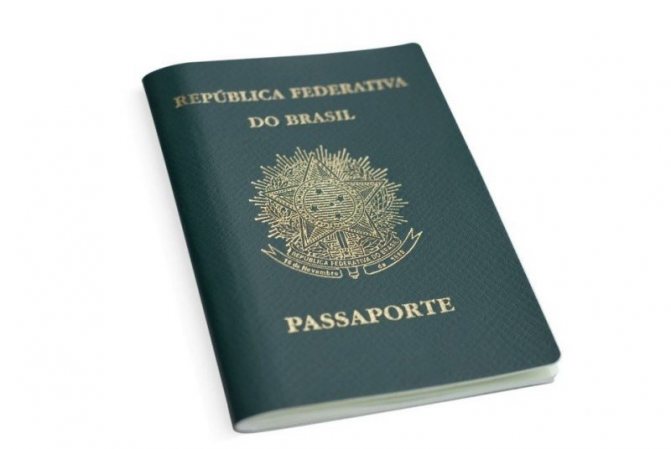
Mexico. Every child born in Mexico becomes a citizen automatically. At the same time, the parents of the newborn almost immediately (about 1 month after submitting the application) receive a residence permit in the country, and after 2 years - a special bonus for the birth of a child - Mexican passports. And it is not at all necessary to live in Mexico while waiting for citizenship - after mother and baby are ready to travel, they can return to their native land. A Mexican passport allows for visa-free, unlimited entry into the EU; in most other countries with such a passport you can stay for 3 and 6 months.

Uruguay. This South American state automatically registers every child born on its territory and grants citizenship. At the same time, parents who remain in Uruguay after giving birth can quickly obtain a residence permit, and after only 3 years of living in the country, obtain citizenship. A Uruguayan passport opens up many opportunities for its owner and the right to legally stay in many countries for up to 90 days without a visa. Accordingly, when obtaining Uruguayan citizenship for the whole family, you can travel almost all over the world without the bureaucratic hassle of obtaining a visa.

It is the above states that, without any problems, register and formalize the child, and, if desired, his parents as their subjects. These states are interested in having as many people as possible under their citizenship, which cannot be said, for example, about China (they only recently noted a law according to which it was allowed to have only 1 child in a family). That’s why pregnant women flock here, dreaming of dual citizenship for themselves and their baby.
What does law of the soil mean?
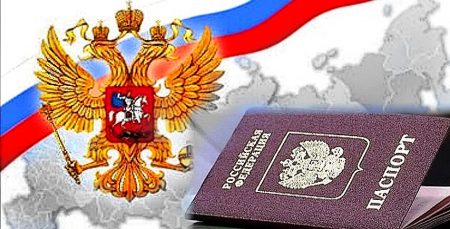
Citizenship of a particular country can be obtained by methods provided for by the legislation of a particular state. All existing methods can be classified as follows.
- Acquiring citizenship by right of blood. This is the most used option in the world, when the infant's citizenship to the country is determined by the civil status of his mother and father. The principle applies regardless of the territory of which country the newborn was born.
- Obtaining the status of a citizen of the country according to the law of the soil. Every newborn born in a country whose laws accept this right receives the right to status. Among the countries practicing this right are the USA, Brazil, Mexico, Canada.
- Citizenship to a country is inherited. This is the rarest form of obtaining citizenship. Its essence is that a descendant of an already deceased citizen can acquire the status of this country by proving a family connection. Practiced in the Baltic countries, Romania.
The legislation of the overwhelming majority of states provides for citizenship both by blood and by law of soil. A characteristic feature of the basis for civil status under the law of soil is the fact that its receipt is not related to the will of the applicant. There is no requirement to carry out any procedures to confirm a person’s readiness to become a citizen of the state in which he was born. Citizen status is assigned automatically.
Obtaining citizenship by birth: list of countries
The table provides a detailed list of states that recognize children as citizens by birth on their territory. There are 29 in total. States that are considering laws to abolish the granting of citizenship to children born of foreigners are excluded from the list.
| North. America | Canada, Mexico, Saint Lucia, Saint Vincent and the Grenadines, Saint Keynes and Nevis, USA, Trinidad and Tobago, Jamaica |
| Center. America | Belize, Guatemala, Honduras, Costa Rica, Nicaragua, Panama, El Salvador |
| South America | Ecuador, Uruguay, Peru, Paraguay, Guyana, Bolivia, Brazil, Argentina, Venezuela |
| Caribs | Grenada, Dominica |
| Oceania | Tuvalu, Fiji |
| South Asia | Pakistan |
The rest of the world's countries are in no hurry to accept as citizenship children born on their soil from foreigners. In some of them, it is possible to obtain a national passport through naturalization - submitting an application, providing the necessary papers and a birth certificate, passing exams on knowledge of the language and history of the state, but all this must be done independently by the child upon reaching the age of 18.






